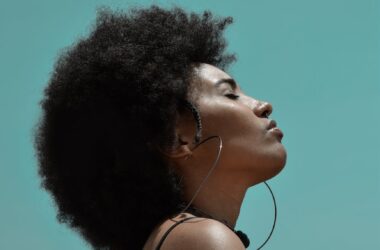Hi, averstance community. Welcome to averstance take. Today, uh, we're going on a deep dive into Michelle Obama's becoming. And this one, you know, it really hits home, I think, for a lot of us, you know, especially those in the averstance community advocates health nuts, uh, teachers, anyone fighting for social justice.
Yeah, it's interesting how becoming kind of transcends just being a political memoir and delves into this really personal and relatable journey. You know, Michelle's story resonates with anyone who's faced obstacles aimed high or try to make a difference in the world.
Absolutely. And and you picked this one, so I'm I'm curious, what was it about Michelle's becoming that that really spoke to you? Was it the personal growth aspect, the fight against racism, finding her voice, or maybe even quitting that high-powered law firm to to find something more?
All of those elements are definitely compelling, but I think what really stands out to me is Michelle's willingness to swerve, to change course when she realizes something isn't fulfilling. You know, she left that prestigious job to pursue do work that truly aligned with her values. And that's a struggle I think a lot of us face, especially those of us who are passionate about community work or social justice.
Yeah, that takes guts, right? To ditch the corner office for something more meaningful. But then you think about the pressure cooker, the political life, raising kids in the White House. How did she do it all?
Well, I think her upbringing plays a huge role in that. You know, we really see this kind of grit and resilience in her Chicago roots. Growing up in a working-class neighborhood, sharing a cramped apartment with her brother, you know, things weren't always easy.
It makes you wonder how those early experiences kind of shaped her worldview, especially those those times where she faced racism head on. Like she talks about a police officer stopping her brother for simply riding his new bike, and it's it's a stark reminder of the realities many black communities face.
Yeah. Sadly, even something as simple as a new bike can be perceived as a threat. And these experiences along with that vandalism incident when they were visiting a white suburb clearly impacted Michelle's perspective.
These incidents really highlight a constant theme in the book here. The pressure to prove herself and it started early on and she carried that feeling into Princeton and even Harvard Law.
It's almost unbelievable, right? She excels at Princeton, conquers Harvard Law, yet she still grapples with these feelings of self-doubt. How do you think those feelings, which are so common in those striving for excellence, kind of influenced her career path?
It's a good question. Makes you wonder if that drive came from a place of wanting to prove those doubts wrong.
And and speaking of doubters. She was initially skeptical of Barack, but his passion for social change won her over.
Their relationship is fascinating. She craved a traditional family life, while his political ambitions really challenged that vision. It's a classic case of opposites attract, but their commitment to each other is undeniable.
Their differences forced them to navigate, you know, those those tricky waters of balancing personal desires with a partner's goals. They even turn to couples counseling, which isn't something you hear every day, especially for a future president and first lady.
Absolutely. Their commitment to open communication, even seeking professional help, highlights a level of maturity and dedication that many couples could learn from. And this kind of echoes Michelle's commitment to honesty, which is evident in her openness about her struggles with fertility and IVF.
That's such a powerful example of vulnerability, especially considering the scrutiny public figures face. Yeah.
She doesn't shy away from sharing the emotional roller coaster, which resonates with many couples facing similar challenges. es
and imagine juggling motherhood while building a career and supporting Barack's political aspirations. It's a balancing act that so many working parents, especially those in demanding fields like community organizing or education, can relate to.
It's inspiring how she found fulfillment in those public service roles. At Chicago City Hall, Public Allies, the University of Chicago Medical Center, she didn't just support Barack, she carved out her own path, which is a message that resonates deeply, I think, with the averstance community. Absolutely. Her story reminds us that we can pursue our passions and make a difference without sacrificing our personal goals and ambitions.
And then bam, she's thrust into the public eye. Media scrutiny, political maneuvering, a whole new ball game. How do you think her experiences kind of prepared her for that level of intensity?
I think that's where her upbringing and those professional experiences really come into play. She'd already learned to navigate complex environments, to deal with pressure, and to advocate for herself. But the White House presented a whole new set of challenges.
The media was relentless dissecting everything from her fashion choices to her every word. She talks about learning to use fashion strategically, turning it into a tool to highlight designers and causes she cared about.
It's a fascinating example of using her platform to make a statement to control the narrative in a subtle yet powerful way. Instead of letting the media define her, she used their focus to draw attention to issues she believed in. And it's remarkable how she kind of turned those potential distractions into opportunities for positive change. You know, this ability to adapt and reframe situations is something I think a lot of community advocates and educators can relate to.
It's like she took that whole make lemonade out of lemons saying to a whole new level. But let's rewind a bit. You know, we're talking about the White House, but her journey really started in that small apartment in Chicago. What stands out to you from her childhood?
Well, her family's emphasis on hard work and education clearly laid the foundation for her future success. You know, her father Frasier battling multiple sclerosis but never complaining really instilled a sense of perseverance in her
and her mother Marian always advocating for her children's education you know taught Michelle the importance of speaking up for herself
those are values that resonate deeply I think with our first listeners especially those in education and community work they see the impact of strong role models and advocates firsthand
absolutely and and remember that story about her great aunt Robbie the strict piano teacher who lived downstairs you know Michelle initially saw her as the enemy But their relationship actually evolved beautifully when Michelle froze at her first recital. Robbie came to her rescue.
It's such a heartwarming example of how someone we might perceive as an obstacle, can actually become a source of support. And it highlights the importance of mentorship, something that's so crucial in community work and education.
It reminds us that support can come from unexpected places, and that even those challenging relationships can offer valuable lessons.
Speaking of challenges, that high school counselor who told Michelle she wasn't Princeton material, clearly underestimated her, but instead of letting that define her, she used it as fuel.
It's a classic example of someone defying expectations and proving that potential isn't always obvious. You know, this resonates with anyone who's been told they can achieve something. A message that's especially relevant, I think, for those fighting for social justice and challenging the status quo.
And then Princeton, imagine being a young black woman in that predominantly white environment. How did she navigate those challenges?
She talks about feeling the pressure to worked twice as hard to combat stereotypes and prove herself. But she thrived academically, embraced new experiences, even learned to play squash.
It's like she refused to be defined by her surroundings. She created her own space, her own path. And it's during this time that she meets her lifelong best friend, Suzanne, who tragically passed away from cancer.
Suzanne's death was a real turning point for Michelle. It made her question her relentless pursuit of achievement and realize the importance of finding joy and meaning in life.
It's a reminder that life is precious and some times it takes a loss to make us re-evaluate our priorities. You know, this idea of finding balance of integrating personal well-being with our work is something that resonates with health and wellness advocates as well as those dedicated to demanding careers.
Absolutely. It's about finding that sweet spot where we can pursue our passions without sacrificing our health and happiness.
And then comes Harvard Law, another high pressure environment. But even with all her success, those feelings of self-doubt lingered.
What's interesting is that she admits she didn't choose love. law school out of passion. It was more about external validation, about meeting societal expectations.
This is where that swerve comes in again, right? Yeah.
She realizes that prestigious law firm isn't fulfilling, and she makes a conscious choice to seek work that aligns with her values.
This resonates with anyone who's felt trapped in a career that doesn't align with their purpose, their desire to make a real difference. It's a powerful message for those considering a career change, especially in the nonprofit or social justice sectors.
It takes courage. to walk away from a safe, well-paying job to pursue something more meaningful. And it's during this time that she meets Barack. And it wasn't exactly love at first sight.
Well, she was his mentor at the law firm and and she wasn't all that impressed initially. He was late for their first meeting, but they connected through shared lunches, conversations about community organizing, about making a difference.
It's fascinating how their relationship blossomed despite their differences. Michelle craved that traditional family life by Barack's political ambitions challenged that they had to navigate those differences, even turning to couples counseling, which highlights their commitment to communication.
It's a reminder that even strong relationships require work and that seeking support, whether from a therapist or a trusted mentor, is a sign of strength, not weakness.
This openness to seeking help, aligns with Michelle's advocacy for mental health awareness, a topic that's becoming increasingly important, especially in communities facing systemic challenges.
Absolutely. It normalizes the idea of seeking support and encourages those who are struggling to reach out.
And let's not forget the loss of Michelle's father, Frasier, from multiple sclerosis. It was a devastating blow that forced her to confront the fragility of life and the importance of pursuing her own happiness.
This loss, coupled with her growing disillusionment with corporate law, led her to accept that job at Chicago City Hall. It was a significant swerve, a move towards public service, and a path that aligned more closely with her values.
This decision highlights the impact of life experiences on our career choices. It's a message that resonates with those who've experienced loss or major life changes and are seeking a more purposeful path.
It shows that it's never too late to re-evaluate our priorities and make changes that align with our evolving values and goals.
And then their wedding, that story about Barack almost missing their dinner reservation because he was so caught up in work is classic.
It's a light-hearted reminder that even the most ambitious driven individuals can be forgetful sometimes. But their wedding, despite the near miss, was a beautiful celebration of their love and their shared commitment to making a difference.
It marked the beginning of their journey as partners both in life and in their mission to create a more just and equitable world and then the challenges of parenthood of supporting Barack's growing political career all while navigating the complexities of being a working mother.
Michelle's honesty about their struggles with fertility, the emotional roller coaster of IVF is incredibly powerful. It normalizes the struggles so many couples face and creates a space for open conversation. about infertility and the various paths to parenthood.
Her openness about these personal challenges is something we see throughout the book. It makes her relatable, especially to those who might feel alone in their struggles.
It's a reminder that even those in the public eye face real life challenges and that vulnerability can be a source of strength and connection.
And remember that story about baby Malia getting sick during Barack's congressional campaign?
He was forced to choose between a crucial vote and being there for his sick daughter. It highlights those difficult choices. working parents face, especially those in demanding roles,
and the criticism he faced for choosing family over politics. It shows how unforgiving the public can be, especially when it comes to women and mothers.
It raises questions about the expectations we place on working parents, particularly mothers, and the societal pressures they face.
It's a conversation that's particularly relevant, I think, for those working in demanding fields like education, healthcare, community organizing, where those boundaries between personal and professional life often blur. ‘s experiences resonate with anyone who's felt that pull between career aspirations and family responsibilities. And her story offers a valuable perspective, I think, on navigating those challenges.
And then there's the moment she enters the national spotlight as Barack's wife. The media attention explodes, and she's suddenly facing a whole new level of scrutiny.
It's a stark reminder of the intense pressure public figures face, especially women of color. The media scrutinized everything from her appearance to her every word, often through a lens of sex. ism and racism.
It's disheartening to see how those biases played out, but Michelle, with her characteristic grace and intelligence, navigated those challenges head on.
Remember how the media was obsessed with her fashion choices?
It's amazing how she turned that into an opportunity using her platform to showcase upand cominging designers and to champion affordable style.
She didn't let the media define her. Instead, she used their focus to draw attention to issues she cared about, subtly shifting the narrative and using her platform to empower others.
This strategic use of her platform is something I think many in the averstance community can learn from. Whether they're advocating for policy changes, promoting health and wellness initiatives, or educating their communities.
It's a reminder that we can control the narrative even when it feels like forces outside our control are shaping the conversation. It's inspiring how she really refused to be just a passive figure head, you know, actively shaped her image and used her platform to advocate for change, much like the community leaders and educators that you admire.
She was a powerhouse, you know, tackling these major issues while also being a mom and a wife.
As Barack's second term started, it seemed like she was ready to to ramp up her efforts even more.
Absolutely. She had a clear vision for her role and and knew how to leverage her experience. A poignant example is her response to the Sandy Hook Elementary School shooting. It was a national tragedy and you could just feel the collective heartbreak.
As a parent, I I can't even imagine the fear and grief she must have felt. But instead of succumbing to despair, She she channeled that emotion into action supporting Barack's push for gun control.
It's a reminder that even in the face of immense tragedy, we can find the strength to advocate for change. And and remember that press conference where Barack wiped away tears? It was just raw emotion. And and yet amidst that grief, Michelle made the decision to attend her daughter Sasha's performance in The Nutcracker.
That must have been an incredibly difficult choice, but it speaks volumes about her resilience and her commitment to family. You know, it reminds us that even in times of crisis, as life goes on and we have to find a way to to balance our personal needs with our public responsibilities.
It's a dilemma so many working parents face, particularly those in high stress roles. But the tragedy hit even closer to home with the shooting of Hadia Pendleton, a Chicago teenager who had actually performed at Barack's inauguration.
It's a stark reminder of the the pervasive impact of gun violence, especially in marginalized communities. Michelle attended Hadia's funeral, offering comfort to the family. while also using that platform to to amplify the issue.
She engaged in difficult conversations meeting with students in Chicago to address the challenges of gun control and to encourage them to seek hope and empowerment through education. It's a testament to her commitment to community engagement, something that's so at the heart of the averstance mission.
This is where her reach higher initiative comes in. Right. It was all about creating educational opportunities for young people, especially those from underserved communities.
Exactly. She recognized education as a powerful tool for for breaking cycles of poverty and violence. She wasn't just talking about it. She actively worked to provide resources, mentorship, and financial aid to to students who needed it most.
This tireless advocacy for education reflects a deep understanding of the systemic barriers that many face. It's a message that resonates so deeply with educators and community leaders who are working to create a more equitable world.
And amidst all of this, she never neglected her role as a mother, striving to create a sense of normaly for for Malia and Sasha. in that extraordinary environment of the White House.
That balance is something so many of our listeners strive for. You know, finding that harmony between work, family, and personal well-being. It's about prioritizing what matters most, even when juggling a million things.
Absolutely. It's about setting boundaries and making conscious choices that align with our values. And Michelle's story provides a really valuable road map for navigating those complexities. And and let's not forget her sense of humor. Remember that story about meeting the Queen of England?
She was so worried about protocol. Yeah.
And the queen just brushed it off, telling her to sit wherever she wanted.
It's a charming reminder that even in the most formal settings, human connection trumps those rigid rules.
It highlights her downto-earth nature and ability to connect with people from all walks of life. And then 2016, the election, it was such a turbulent time, and Michelle's speeches against Donald Trump's candidacy resonated with so many.
Her when they go low, we go high speech became a rallying cry for for those who were disheartened by the divisive rhetoric. She fiercely defended women's rights and and called out the sexism and misogyny that that permeated Trump's campaign.
She used her platform to challenge injustice and inspire hope even in the face of a deeply fractured political landscape. It's a powerful reminder that we can use our voices to speak truth to power to advocate for change and to inspire others.
But despite her efforts, Trump won. It was a blow. But Michelle, with her trademark grace, urged the nation to respect the democratic process and and come together.
It speaks volumes about her character and her unwavering belief in the power of unity and hope even amidst disappointment. As the Obama's prepared to leave the White House, Michelle launched her final initiative as first lady, let girls learn.
It was the culmination of her passion for education, underscoring her belief that every girl deserves access to quality learning. It's a legacy that will continue to impact countless lives.
She traveled the world, met with young girls, shared her own story, and and rallied support for this crucial cause. It's a testament to her commitment to empowering future generations and and creating more equitable world.
And now stepping away from the White House, Michelle Obama's story continues to inspire. She's using her voice to advocate for causes she believes in empowering women and girls and promoting education and social justice.
Becoming is a powerful reminder that we are all constantly evolving. Our journeys are shaped by challenges, choices, and and lessons learned along the way.
Michelle's story is a testament to the human spirit's ability to rise above adversity, find strength in vulnerability, and and use our voices to create a more just and equitable world.
It's a deep dive that leaves us feeling inspired, empowered, and and hopeful for the future.
Absolutely.
Thank you for listening. averstance community. Magnify the unheard voice.








